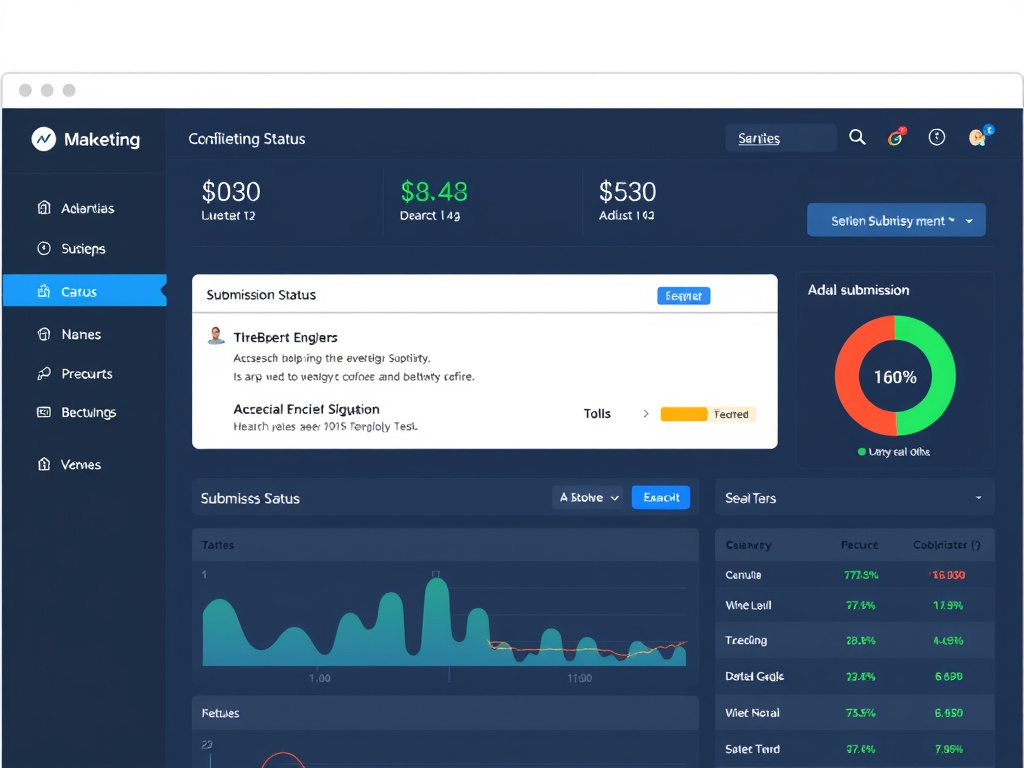In the ever-evolving landscape of digital marketing, search engine submission remains a foundational yet often misunderstood step toward achieving online visibility. I’ve come to realize that many website owners and content creators overlook or underestimate its significance. Today, I want to share my insights into what search engine submission truly entails, why it matters, and how to approach it strategically for maximum impact.
What is Search Engine Submission?
Search engine submission is the process of notifying search engines about your website or new content, encouraging them to crawl, index, and rank your pages. Think of it as a formal invitation to search engines to explore your site and include it in their database.
Why is it Important?
Without proper submission, your website might still be discovered automatically through crawling, but the process can be slow, especially for new sites. Submitting your site directly can:
- Accelerate the indexing process
- Improve your chances of appearing in relevant search results
- Help you monitor your site’s performance in search engines

The Traditional Approach to Search Engine Submission
Historically, submitting your site was a straightforward task—using tools like Google Search Console or Bing Webmaster Tools to manually add URLs or sitemaps.
Common Methods
| Method | Description | Benefit |
|---|---|---|
| Google Search Console | Submit your sitemap or individual URLs | Fast indexing, insights into search performance |
| Bing Webmaster Tools | Similar to Google’s platform | Broader reach for Bing and Yahoo |
| Direct URL Submission | Manually submit individual pages | Useful for urgent updates |
However, the landscape has shifted. Search engines have become more sophisticated at discovering content without explicit submission, especially if your site is well-structured and linked internally.

When and Why You Should Consider Search Engine Submission Today
While some argue that search engine submission is obsolete, I believe it still holds strategic value, especially in specific scenarios:
Situations Warranting Submission
- Launching a new website: To accelerate discovery
- Publishing time-sensitive content: News, press releases, or trending topics
- Rebuilding or restructuring: Major site updates that need quick indexing
- Ensuring complete coverage: When your internal linking or sitemap is extensive
Key Point: For most established websites, regular crawling suffices, but proactive submission can give you a competitive edge.

How to Effectively Submit Your Site to Search Engines
Step-by-Step Guide
Create a Sitemap
Your sitemap acts as a roadmap for search engines. Use XML formats compatible with Google and Bing.Register and Verify Your Site
Use Google Search Console and Bing Webmaster Tools to verify ownership.Submit Your Sitemap
Upload your sitemap URL to these platforms.Monitor Indexing Status
Regularly check for errors, crawl stats, and coverage reports.
Best Practices
- Keep your sitemap updated with new content
- Use canonical URLs to avoid duplicate issues
- Ensure your site is mobile-friendly and fast-loading

Common Pitfalls and How to Avoid Them
While search engine submission can be beneficial, missteps can hinder your SEO efforts:
Pitfalls to Watch Out For
- Over-submission: Excessive or spammy submissions can be penalized
- Ignoring sitemap errors: Leads to missed indexing opportunities
- Not updating sitemaps: Results in outdated content not being crawled
My Recommendations
- Use submission as part of a broader SEO strategy
- Focus on creating high-quality, indexable content
- Regularly audit your site’s technical SEO health

Key Takeaways
- Search engine submission is about proactively informing search engines of your content
- It is especially useful for new sites, major updates, or time-sensitive content
- Proper use of sitemaps and webmaster tools can optimize your indexing process
- It should complement, not replace, good SEO practices like quality content and technical optimization
Remember: While search engine submission can speed up discovery, consistent SEO efforts are essential for sustained visibility.
FAQs About Search Engine Submission
Q1: Is search engine submission necessary for all websites?
A: Not necessarily. Established sites with good internal linking and backlinks are often discovered automatically. Submission is more critical for new or significantly updated sites.
Q2: How often should I resubmit my website?
A: Only when you make major changes or add a large volume of new content. Frequent resubmission without updates can be counterproductive.
Q3: Can I submit my site to all search engines?
A: Focus on Google and Bing, as they dominate the market. Other engines are less relevant but can be included if needed.
Q4: Does search engine submission guarantee top rankings?
A: No. Submission helps with indexing but ranking depends on SEO quality, relevance, and authority.
Conclusion
In my experience, search engine submission remains a valuable component of a comprehensive SEO strategy, particularly during the initial launch or significant updates. While modern search engines are adept at discovering new content, proactive submission can accelerate your visibility and give you an edge in competitive markets.
Ultimately, the goal is to create a well-structured, high-quality website and leverage submission as a strategic tool—ensuring your audience finds you when it matters most.

Ready to boost your website’s visibility? Start with a clean sitemap, verify your site on webmaster tools, and submit today. Your future visitors are searching—make sure they find you.


